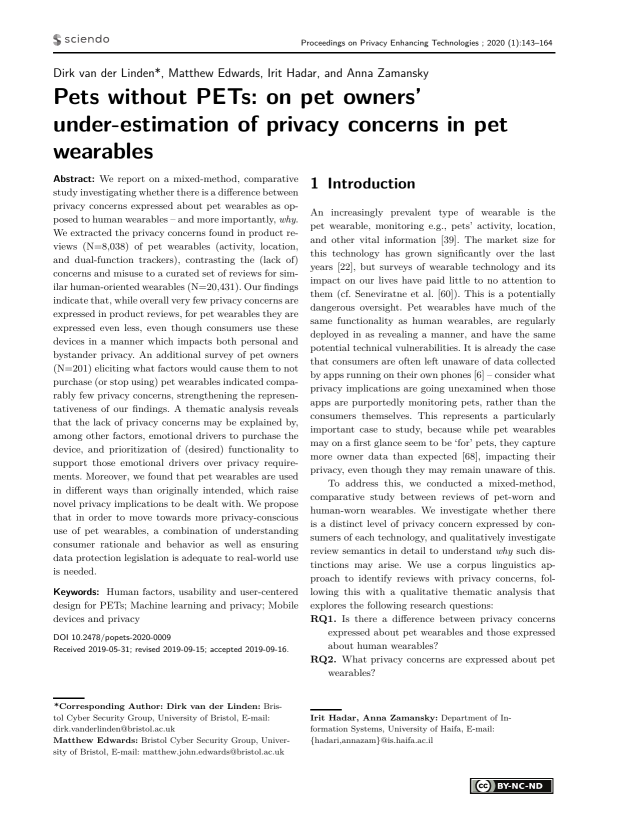Pets without PETs: on pet owners’ under-estimation of privacy concerns in pet wearables
Authors: Dirk van der Linden (Bristol Cyber Security Group, University of Bristol), Matthew Edwards (Bristol Cyber Security Group, University of Bristol), Irit Hadar (Department of Information Systems, University of Haifa), Anna Zamansky (Department of Information Systems, University of Haifa)
Volume: 2020
Issue: 1
Pages: 143–164
DOI: https://doi.org/10.2478/popets-2020-0009
Abstract: We report on a mixed-method, comparative study investigating whether there is a difference between privacy concerns expressed about pet wearables as opposed to human wearables – and more importantly, why. We extracted the privacy concerns found in product reviews (N=8,038) of pet wearables (activity, location, and dual-function trackers), contrasting the (lack of) concerns and misuse to a curated set of reviews for similar human-oriented wearables (N=20,431). Our findings indicate that, while overall very few privacy concerns are expressed in product reviews, for pet wearables they are expressed even less, even though consumers use these devices in a manner which impacts both personal and bystander privacy. An additional survey of pet owners (N=201) eliciting what factors would cause them to not purchase (or stop using) pet wearables indicated comparably few privacy concerns, strengthening the representativeness of our findings. A thematic analysis reveals that the lack of privacy concerns may be explained by, among other factors, emotional drivers to purchase the device, and prioritization of (desired) functionality to support those emotional drivers over privacy requirements. Moreover, we found that pet wearables are used in different ways than originally intended, which raise novel privacy implications to be dealt with. We propose that in order to move towards more privacy-conscious use of pet wearables, a combination of understanding consumer rationale and behavior as well as ensuring data protection legislation is adequate to real-world use is needed.
Keywords: Human factors, usability and user-centered design for PETs; Machine learning and privacy; Mobile devices and privacy
Copyright in PoPETs articles are held by their authors. This article is published under a Creative Commons Attribution-NonCommercial-NoDerivs 3.0 license.

